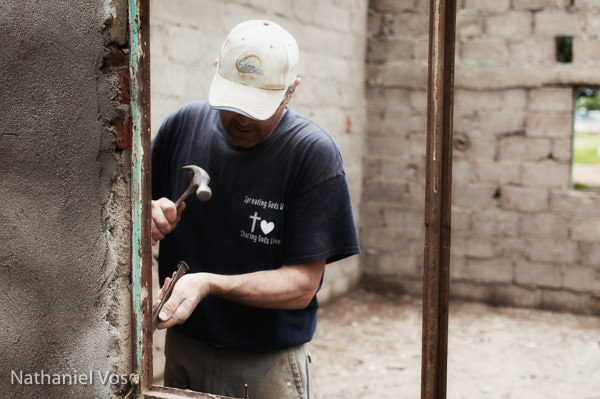
It’s been a long time since I last went on a short term missions trip — something like 16 years, actually. Part of the reason for that I told myself was that they were an inefficient use of limited resources. But when Jerry (my second cousin) asked me if I’d join them on an EduDeo work trip, I thought that maybe after such a long hiatus, I should go. It was the right decision.
While I have seen exceptionally poor areas in the world before, it had been a while. And it sharpens the mind to be in amidst the challenge and the hardship. After all, in the abstract all problems are an intellectual exercise, but when they manifest as reality, they become personal and immediate. While we frequently did not have water or electricity, that only helped deepen the sense that of the need and the strength of our mission.
Still, it was a bit of an adjustment… For one, there are few things as disconcerting listening to a mosquito right outside your ear in pitch darkness and hoping that it’s outside your bednet. There were a few times that I woke up on the outside of that thing and just prayed that I hadn’t gotten bit at some point in the middle of the night. Thankfully, there’s been no sign of malaria yet. And I constantly reminded myself that while this might be a challenge for a couple of weeks, everybody that we were working with simply lived with these challenges all the time.
I found the trip to be very educational in so many ways. For a westerner, it struck me nearly immediately that we would go about construction very differently. But there were no powertools and obtaining resources is a serious challenge, so everything that could be salvaged was and the rest of the work was simply done by hand. Concrete was mixed by shovel, water was hauled by village women with buckets, floors were removed with a pickaxe, and so on. In just a small way, I thought it might be how my grandparents might have remembered working on the farm when they grew up.
The project was set up from the outset to use be a community effort, and so we worked side by side with people from the neighboring villages, the Parent Teacher Association, the Church of Central African Presbyterian, and local labourers hired for the effort. And that’s absolutely the way that it should be. The community will finish the refurbishment of Mwase Primary and their children will attend classes there for many years to come. For me, it was very satisfying to see that kind of engagement and sense of ownership. It also highlighted how these trips really can be worth the apparent inefficiency, because they accomplish so much more than simply the limited amount of building that a team can finish in 10 or so working days. They are:
- demonstration of compassion (much more meaningful than mere monetary assistance)
- better fund raising than efforts without personal involvement
- accountability for the projects (we’re there and can see fruits of our efforts)
- good way to raise awareness
- a spiritual retreat (unanticipated)
After a bit of reflection, I would go again.
